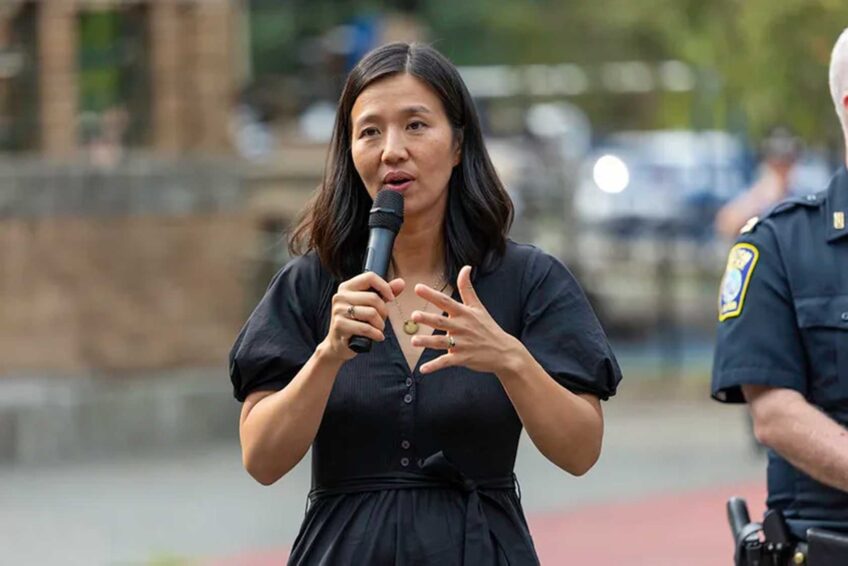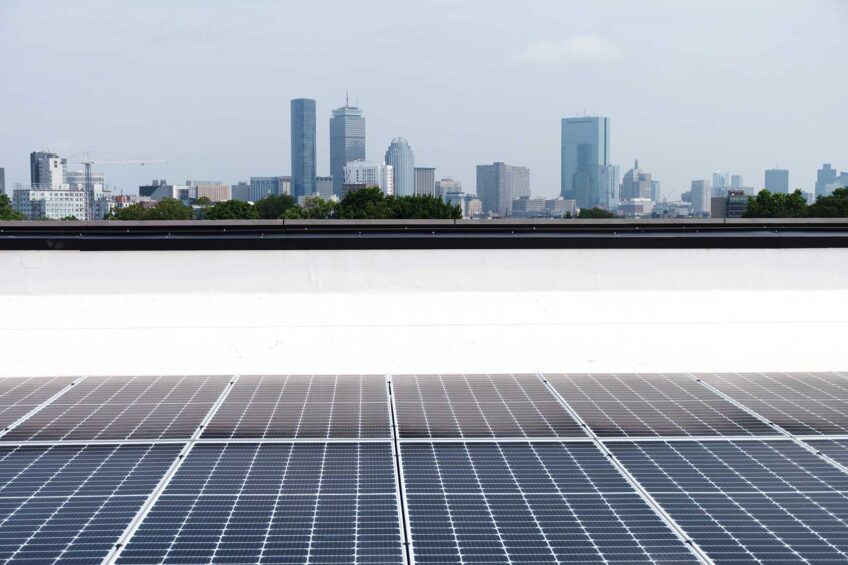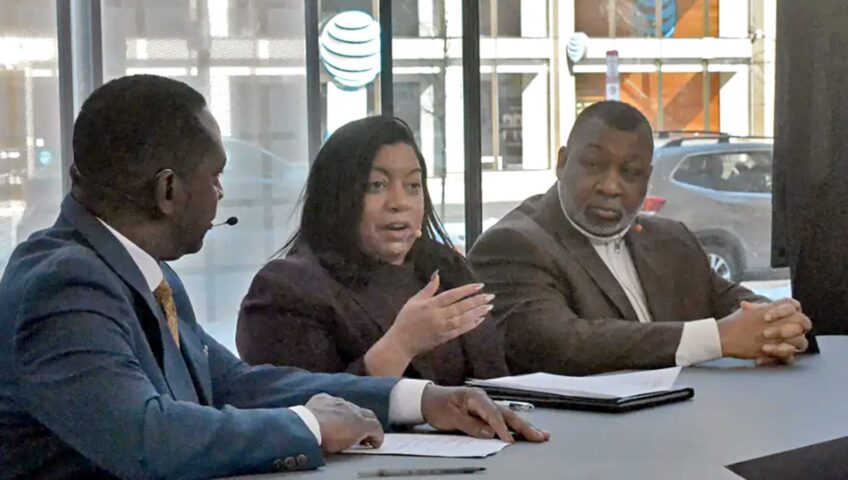New state grants mean increased access to waterfront and Harbor Islands, more support for commuter ferries

A $200,000 grant to the nonprofit Boston Harbor Now will mean greater access to the waterfront and harbor islands for student groups and communities that have historically faced barriers to waterfront access.
The funding was announced as part of the state’s inaugural $2.3 million Boston Harbor Water Transportation Grant, announced Aug. 13. This new effort from the state’s Department of Environmental Protection aims to reduce road congestion, make daily travel easier and connect more residents with the region’s cultural and historical assets.
For Boston Harbor Now, that focus on connection is especially important when it comes to breaking down barriers for communities that have historically been challenged in waterfront access.
“We really want to make sure that environmental justice communities that may not have direct access to being in a national park, or being on the coast, or exploring trails and hiking get onto the water and have that opportunity,” said Rebecca Smerling, Boston Harbor Now’s director of planning.
The funding will support Boston Harbor Now’s Island Pass Program, which allows school and camp groups, community centers, senior centers and other organizations to bring community members on free trips to the Boston Harbor Islands, and its Cultural Connector Program, which will run ferries from spots like East Boston and Charlestown to locations downtown and in Seaport to make easier connections for special events like the First Night New Year’s celebrations.
It also will go toward the organization’s Community Cruise Program, through which Boston Harbor Now partners with nonprofits to bring community members out onto a free harbor cruise with targeted cultural and educational programming.
“By bringing a community together, it really builds trust,” Smerling said. “It also builds a deeper connection with the community to the harbor itself.”
For almost a decade, Roxbury and Dorchester residents have accessed the harbor through Boston Harbor Now’s Community Cruise Program in partnership with The American City Coalition, an organization based in Nubian Square.
The American City Coalition has partnered with Boston Harbor Now annually since 2018, as part of its Waterways initiative, which aims to connect more Roxbury and Dorchester residents with harbor-front activities.
This year’s cruise, which set sail July 31, saw over 400 attendees, said Rev. Willie Bodrick II, president and CEO of The American City Coalition, and was full of dancing and music and community, despite grey and rainy skies.
The cruise, he said, is an example of the kind of work the Waterways initiative aims to do, breaking down present and historic barriers that have kept members from Boston’s communities of color off of the waterfront.
“Our goal is really to reduce community-identified barriers that keep folks from accessing the waterfront and continuing to increase the numbers of folks from Roxbury and Dorchester to really experience the benefits of living in a coastal city,” Bodrick said.
Those barriers, he said, include things like affordability, transportation, language access and historical sentiments that have left certain parts of the city’s population feeling distant from the waterfront.
Through the new funding, he said he’s hoping to expand and continue the partnership with Boston Harbor Now.
He said he views the state’s continued commitment to supporting water-transit and access as an exciting inclusion.
“I think it’s important that the state is continuing to lean in to creating access,” Bodrick said. “I’m thankful that the Healey-Driscoll administration is intentional around seeing the importance of our waterfront, our waterfront ferries and transportation on the harbor, but also seeing that there’s access to activations on the harbor-front.”
The state funding push is valuable to making more of Boston’s residents feel like the waterfront is for them, Smerling said.
“The harbor — the Harbor Islands, the harbor, the waterfront — Boston Harbor belongs to everyone, and opportunities of access like this make that a reality,” she said.
Beyond the grant to Boston Harbor Now, the state funding also directed $200,000 to Save the Harbor/Save the Bay, a nonprofit which runs free cruise trips that focus on education regarding the history of the harbor and its islands.
The Massachusetts Convention Center Authority received $400,000 to support free and subsidized tickets for service workers commuting to the Seaport, plus operational costs for its East Boston-to-Seaport ferry route.
The MBTA was awarded $1 million to redesign the Winthrop/Quincy commuter ferry route, a process which included splitting it into two distinct routes.
And the Cathleen Stone Outward Bound School, which runs outdoor education programming on Thompson Island, received $250,000 to support repair and upgrades of its ferry.
In a press release, state officials described the grants as a way to make transit faster and more affordable, to increase activity and opportunity along the waterfront and to reduce carbon emissions from personal vehicles used for commuting.
“These funds help take cars off the road and improve access to sustainable transportation options,” said Rebecca Tepper, secretary of the Executive Office of Energy and Environmental Affairs. “We are making smart investments in our future — reducing pollution, improving air quality, and making our daily commutes part of the solution.”
Separately, on Aug. 12, the city of Boston announced the launch of a new ferry stop at the Raymond L. Flynn Marine Park in the South Boston Waterfront to Fan Pier, which will be served by a ferry route operated by the Massachusetts Convention Center Authority and the Seaport Transportation Management Association. The route connects commuters to Fan Pier, also in Seaport, and to North Station.
Officials from the city, which funded the $2.5 million construction cost through its five-year capital plan and the Boston Planning & Development Agency, said the new ferry stop will help reduce reliance on cars and make transportation easier for commuters.
“Expanding water transportation will boost economic activity and also provide important commuter alternatives that can ease traffic,” said Mayor Michelle Wu. “This new commuter ferry stop at Pier 10 in the Raymond L. Flynn Marine Park builds on our administration’s efforts to give residents more options to get around safely while making significant investments that better connect our communities.”







Leave a Reply
You must be logged in to post a comment.